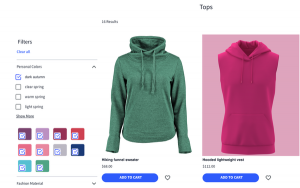By Kim Rittberg
You need to brag. No one knows about what you’ve done, how skilled you are, the recognition you’ve received—until you tell them. No one is going home to google you—the burden is on you.
My mantra: Humility does not pay the bills.
This is especially important for women. There is a substantial gender gap in self-promotion: “Women systematically provided less favorable assessments of their own past performance and potential future ability than equally performing men,” according to a study from professors at Wharton and Harvard.
My caveat: There is, of course, an art to bragging. How do you promote yourself in a way that earns you clients and promotions instead of the side-eye? Effective and artful bragging should highlight the wonderful things you’re doing and the hard work you’ve put in so that the right people will notice. In turn, those people will want to hire you, work with you, and collaborate with you.
Reframe the idea of bragging
First things first, you need to reframe the concept of bragging. It’s gotten a bad reputation.
Meredith Fineman, author of Brag Better: Master the Art of Fearless Self-Promotion, says she defines bragging as “stating facts about your work strategically and cohesively to advance your professional goals and the goals of those around you.”
Think of your experience as “data points” that you can mention, rather than brags.
Don’t undercut your own message
When posting a win to social media, Fineman says do not write phrases like, “I hate to brag,” “self-promotion alert,” or “shameless brag.” She says it undercuts your own PR by “showcasing that anxiety in a way that your reader or your audience doesn’t know what to do. What you’re saying to your audience is, I feel uneasy about this. And that’s going to make them feel uneasy.”
Instead of undercutting yourself, insert gratitude. Say something like, “I was so grateful to be a part of this panel.” And then tag it so it’s a team effort as well. Or say you were honored or excited. And if you’re really struggling with it, you can say, “I can’t believe I got this award, but I’m so happy I did.” Fineman says, “It’s okay to share your sentiments and this stuff being difficult.”
Tell a story and be its hero
Communications coach and speaker Debbie Epstein Henry recommends using storytelling to effectively self-promote. Put these details in your verbal introduction or social media post. “Show your gravitas or some success you’ve had but still use that story as a teaching so that people hopefully won’t be put off by it,” she says. As you tell a story, include details that are markers (a work event you spoke at, or a large company you worked at) without directly stating it.
She also recommends considering it as “self-advocacy” instead of “self-promotion.”
At the end of the day, don’t let your fear of sounding obnoxious outweigh your desire to grow your business. You get to decide whether you’re bragging or stating the truth.
(1)







